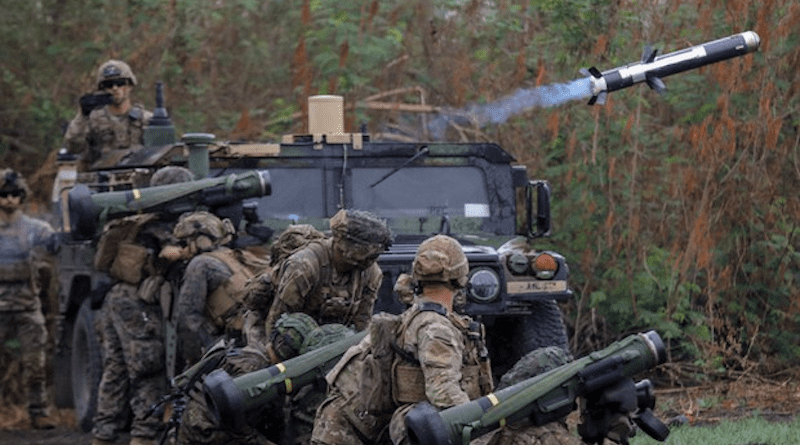Chinese Envoy Advises Philippine Govt To Oppose Taiwan Independence
By BenarNews
By Camille Elemia
China’s envoy to the Philippines on Friday strongly advised Manila to “unequivocally oppose” Taiwan’s independence rather than fan the flames of conflict by offering the U.S. military additional access to bases.
Speaking at the 9th Manila Forum for China-Philippines Relations hosted by the pro-Beijing local group Association for Philippines-China Understanding, Ambassador Huang Xilian said Beijing would not abandon the possibility of war against Taiwan.
“The Taiwan question is entirely China’s internal affair, as is the Mindanao issue to the Philippines. You will never allow any third party to meddle with resolving rebel issues in Mindanao,” Huang said, referring to the southern third of the Philippines where the government had for years faced a Muslim insurgency.
“But we will not renounce the use of force and we reserve the option of taking all necessary measures,” he said.
Huang stressed that the “one-China principle” was the cornerstone of its diplomatic relations with 182 countries, including the Philippines.
While Beijing welcomes Manila’s adherence, it must also “unequivocally oppose Taiwan independence rather than stoking the fire by offering the U.S. access to the military bases near the Taiwan Strait,” he said.
“Some tried to find (an) excuse for the new EDCA sites by citing the safety of the 150,000 [Overseas Filipino Workers] in Taiwan, while China is the last country that wishes to see conflict over the strait because people on both sides are Chinese,” he said, using an acronym for the Enhanced Defense Cooperation Agreement.
The Philippines Department of Foreign Affairs did not immediately respond to BenarNews request for comment.
The U.S. Embassy in Manila issued a statement reiterating its stance on U.S troops and facilities in the Philippines.
“EDCA sites will support combined training exercises and interoperability between U.S. and Philippine forces to ensure that we’re even better prepared for future crises. EDCA is a key component of the U.S.-Philippine alliance and is not about any other third country,” the statement said.
Signed by Manila and Washington in 2014, the EDCA supplemented the Visiting Forces Agreement of 1999. That agreement provided legal cover for large-scale joint war games between the two longtime treaty allies.
Under the EDCA, the Philippines earlier this month allowed the U.S. access to four additional sites, bringing the total number of sites to nine.
Three of the new sites are in military bases in the northern provinces of Isabela and Cagayan near Taiwan, while one is in Palawan facing the West Philippine Sea, the part of the disputed South China Sea within Manila’s exclusive economic zone.
“Facts speak louder than words. Obviously, the U.S. intends to take advantage of the new EDCA sites to interfere in the situation across the Taiwan Strait to serve its geopolitical goals and advance its anti-China agenda at the expense of peace and development of the Philippines and the region at large,” Huang said.
Marcos defended expansion
Previously, President Ferdinand Marcos Jr. defended his decision to expand the EDCA, saying the locations would not be used in offensive military actions.
“Now, the reaction of China is not really surprising because they worry too much. But … the Philippines will not allow the bases to be used in offensive action. The bases are only to help the Philippines if the country needs help,” Marcos said in an interview with reporters on April 10. “So if no one attacks us, they don’t need to worry because we won’t fight them.”
Huang’s remarks came after U.S. and Philippine troops launched their largest-ever joint military exercises.
They also came days after China carried out naval military drills around Taiwan, following Taiwanese President Tsai Ing-wen’s recent U.S. trip where he met with House Speaker Kevin McCarthy.
On Thursday, Philippine soldiers joined their American counterparts in live-fire drills at Fort Magsaysay using the Javelin missile system on day 3 of the “Balikatan” (“Shoulder to Shoulder”) joint exercises. The exercises run until April 28.
Earlier this week, U.S. and Philippine defense and foreign ministers met in Washington for the first 2+2 Ministerial Dialogue in seven years


And The Spratly Islands are 22 miles off the Philippine coast, CLEARLY not China’s territory.